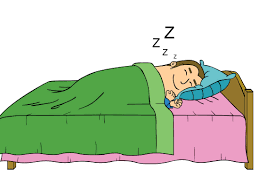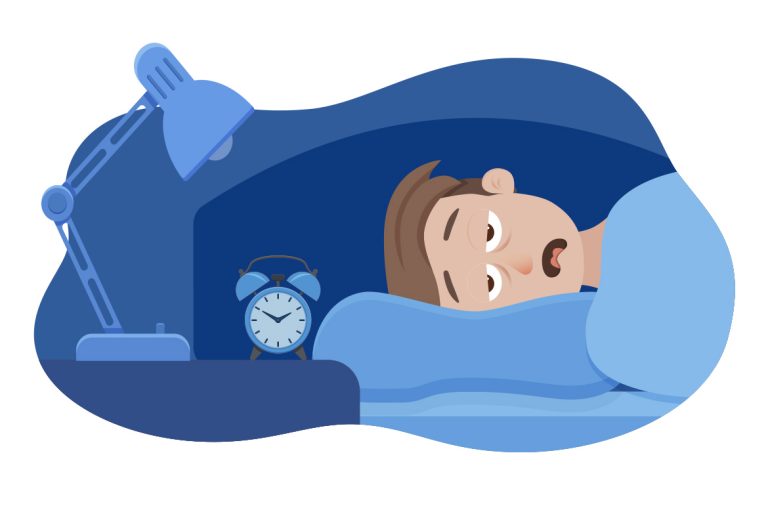Looking for a sleep therapist near you? You’re not alone. Millions of people suffer from some form of sleep disorder each year, and many of them turn to therapy as the solution. Sleep therapy is a process that helps people learn how to get a good night’s sleep without the use of medication. In this blog post, we will discuss what sleep therapy is, the different types available, and why so many people are choosing it over medication. We will also provide tips on finding a sleep therapist and getting started with therapy. Finally, we’ll hear from experts in the field and share a case study on the benefits of sleep therapy.
Contents
Understanding Sleep Therapy

Sleep therapy is a process that helps people learn how to get a good night’s sleep without the use of medication. It involves working with a therapist to identify and address the underlying causes of your sleep disorder. There are many different types of sleep therapy, so it’s important to find one that fits your needs.
How Does Sleep Therapy Work
Sleep therapy usually involves meeting with a therapist for a set number of sessions. The therapist will ask you questions about your sleep habits and history and will help you develop strategies to improve your sleep.
The therapist may also recommend relaxation or cognitive-behavioral therapies, or hypnosis in cases where it is deemed appropriate. These therapies can be done in-person or online, depending on your preferences.
NOTE: It’s important to stick with the therapy plan and attend all of your sessions, as this will help you get the most out of therapy.
Why Therapy Over Medication
Many people choose sleep therapy over medication because it is a more holistic approach to treatment.
- Therapy helps you identify and address the underlying causes of your sleep disorder, while medication simply treats the symptoms.
- In addition, therapy is a long-term solution, while the medication is only a short-term fix.
Sleep Disorders That Sleep Therapy Can Manage
Many different sleep disorders are manageable with therapy, including:
- Insomnia
- Narcolepsy
- Sleep Apnea
- Hypersomnia
- Restless Legs Syndrome (RLS)
- Periodic Limb Movement Disorder (PLMD)
Types of Sleep Therapy
There are three main types of sleep therapy: cognitive-behavioral therapy (CBT), relaxation therapy, and hypnosis.
- Relaxation therapy involves learning how to relax your body and mind to promote better sleep. This type of therapy can include practices like yoga, meditation, and deep breathing exercises.
- Cognitive-behavioral therapy helps people change the way they think about and respond to sleep problems. CBT teaches people how to identify and correct negative thoughts and behaviors that may be preventing them from getting a good night’s sleep.
- Behavioral therapy involves working with a therapist to identify and address the underlying causes of your sleep disorder. It can be helpful for people who have insomnia or other sleep disorders that get worse by behavioral factors.
- Hypnosis is a form of therapy that uses hypnosis, or a trance-like state, to help people change the way they think and behave. Hypnosis can be effective in treating sleep disorders like insomnia and restless legs syndrome.
- Sleep hygiene education involves learning about the best ways to sleep and promoting healthy sleep habits. It can be helpful for people who have insomnia or other sleep disorders that get worse by poor sleep habits.
Finding a Sleep Therapist

There are many ways to find a sleep therapist near you. You can check with your doctor or search online directories. It’s important to choose a therapist who has a license and has experience in treating sleep disorders.
How to Get Started
Once you’ve found a therapist, the next step is to get started with therapy. This will vary depending on the type of therapy you choose. But most likely will involve meeting with your therapist for regular sessions. It’s important, to be honest, and open with your therapist and to follow their instructions closely.
What to Look Out For
There are a few things to look out for when choosing a sleep therapist.
- Be sure to ask your therapist about their experience in treating sleep disorders and how they approach therapy.
- Also, be aware of any red flags, like signs that your therapist does not have a license or is trying to sell you medication.
How Can They Help You
Therapists can help you in many ways, depending on the type of therapy you choose.
- They can provide support and guidance, teach you relaxation techniques, and help you change the way you think about sleep.
- In addition, they can offer advice on how to adjust your lifestyle to promote better sleep.
NOTE: We invite you to list yourself on Therapy Mantra’s Sleep Therapist Directory.
Hearing From Experts
In this section, we’ll hear from two experts in the field of sleep therapy. Dr. Michael Perlis is a Professor of Psychiatry and Director of the Behavioral Sleep Medicine Program at the University of Pennsylvania, and Dr. Jeffrey Ellenbogen is the Chief of Sleep Medicine at Virginia Commonwealth University Medical Center.
Dr. Perlis on Therapy vs Medication
“When it comes to sleep, therapy is almost always the better choice over medication. Therapy helps you identify and address the underlying causes of your sleep disorder, while medication simply treats the symptoms. In addition, therapy is a long-term solution, while the medication is only a short-term fix.”
Dr. Ellenbogen on Sleep Disorders
“One in three Americans suffer from a sleep disorder, and yet most of them don’t know it. Sleep disorders can have a serious impact on your health and quality of life, so it’s important to get screened if you think you might be affected.”
Case Study
In this section, we’ll hear from a patient who successfully treated their sleep disorder with therapy.
When I was first diagnosed with a sleep disorder, I was prescribed medication to help me get better sleep. However, I didn’t like the idea of taking medication every night, so I decided to try therapy instead. My therapist taught me how to identify and correct the negative thoughts and behaviors that were preventing me from getting a good night’s sleep. After a few months of therapy, I was able to get the rest I needed and was able to stop taking the medication.
Resources
In this section, we’ll provide some resources for those looking for more information about sleep therapy.
If you have an interest in learning more about sleep therapy, here are some helpful resources:
- American Academy of Sleep Medicine: aasm.org
- National Sleep Foundation: sleepfoundation.org
- Centers for Disease Control and Prevention: cdc.gov/sleep
Conclusion
If you’re looking for a sleep therapist near you, be sure to do your research and look for red flags that might indicate a bad therapist. Ultimately, if you’re looking for better sleep health, talking to a sleep therapist is a great way to take action in direction.
A Word From Therapy Mantra
Your mental health — Your psychological, emotional, and social well-being — has an impact on every aspect of your life. Positive mental health essentially allows you to effectively deal with life’s everyday challenges.
At TherapyMantra, we have a team of therapists who provide affordable online therapy to assist you with issues such as depression, anxiety, stress, workplace Issues, addiction, relationship, OCD, LGBTQ, and PTSD. You can book a free therapy or download our free Android or iOS app.


